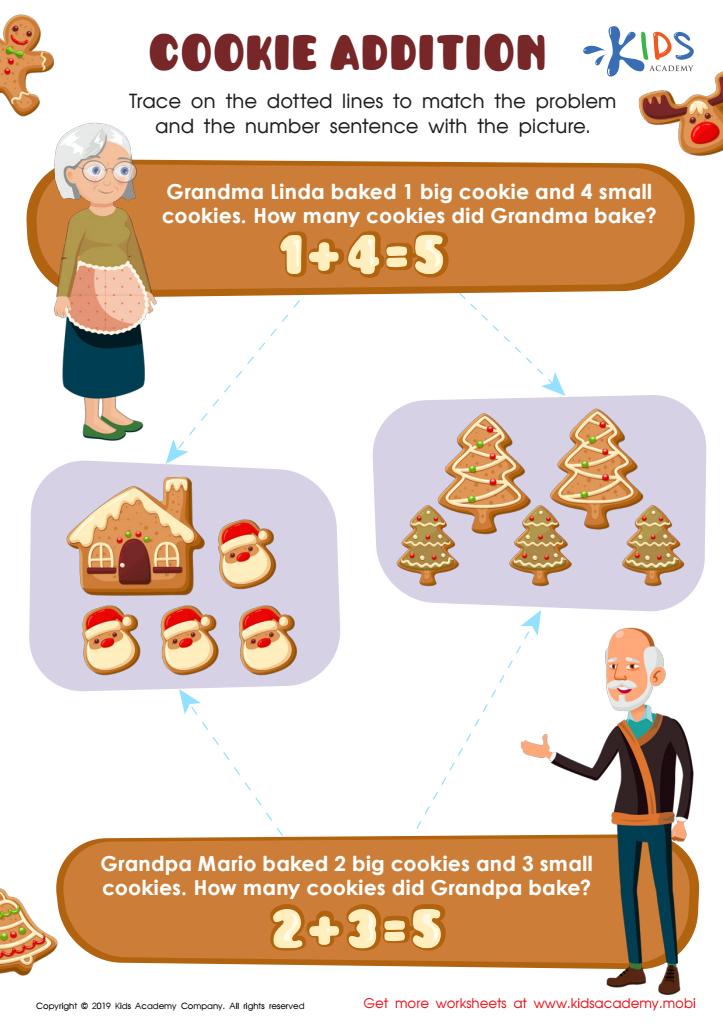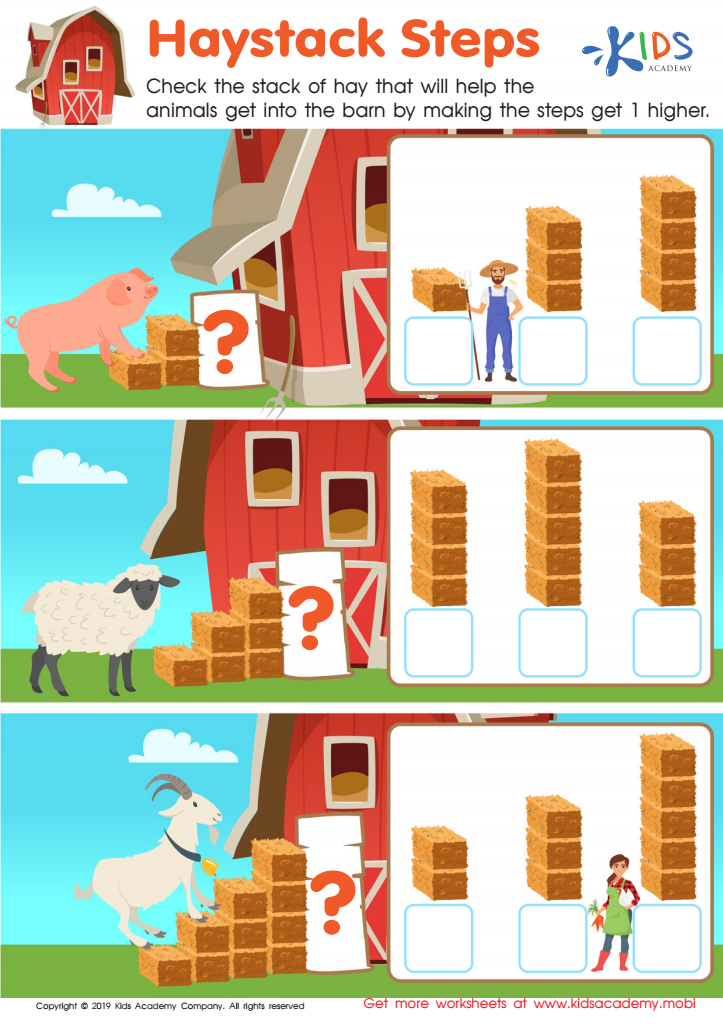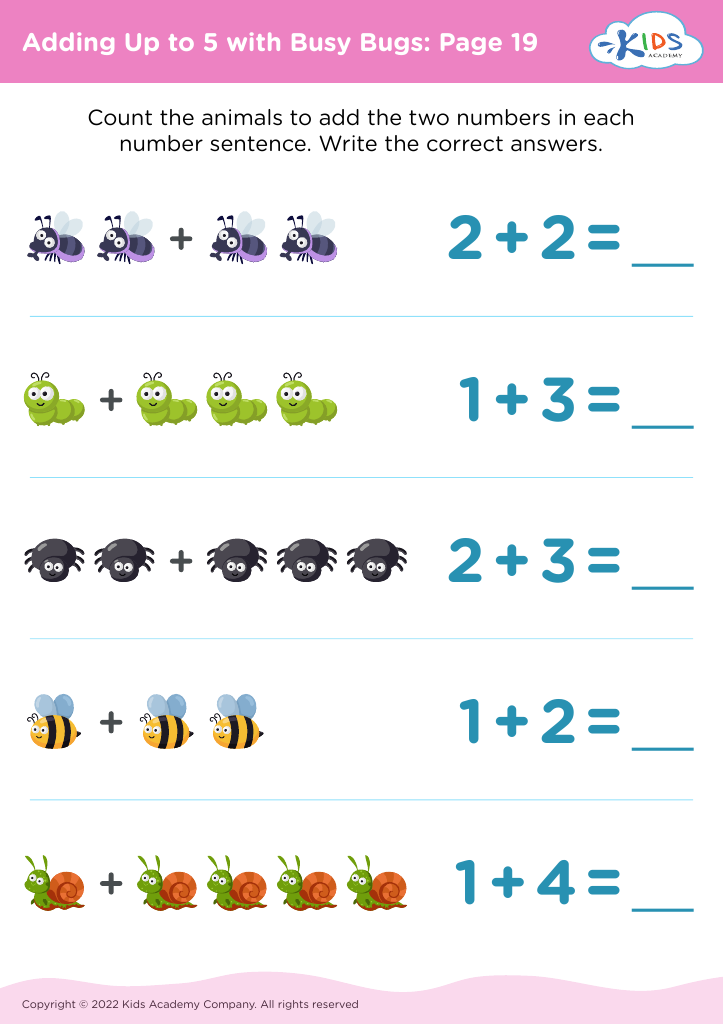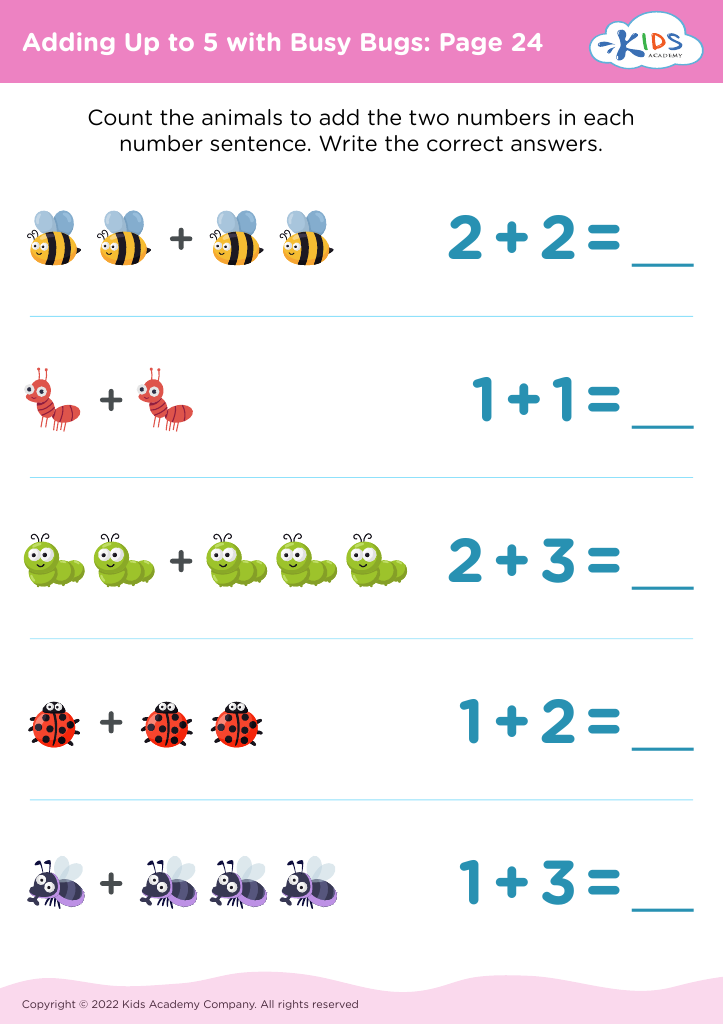Basic math comprehension Math Worksheets for Ages 5-6
4 filtered results
-
From - To
Our "Basic Math Comprehension Worksheets for Ages 5-6" are designed to support young learners in developing essential math skills in a fun and engaging way. Tailored for early grade students, these worksheets cover a variety of topics including number recognition, simple addition and subtraction, and pattern identification. Each worksheet is visually appealing and includes interactive activities that make learning enjoyable. Perfect for at-home practice or in-class instruction, these resources help to build a strong foundation in math while encouraging critical thinking and problem-solving skills. Start your child’s math journey today with our accessible and effective worksheets!


Cookie Addition Worksheet


Haystack Steps Worksheet
Basic math comprehension for ages 5-6 is vital for several reasons. First, it lays the foundation for future learning. At this age, children develop critical thinking and problem-solving skills through simple operations like addition and subtraction. Understanding these concepts fosters a positive attitude towards math that can last a lifetime.
Moreover, math is essential for everyday life. Early mastery of basic math helps children grasp concepts related to finance, time, and measurement. For instance, learning to count can help them when purchasing items, ensuring they develop practical skills that will aid their independence.
Additionally, basic math comprehension promotes cognitive development. Activities like counting and sorting enhance their ability to recognize patterns, develop spatial awareness, and improve memory. This holistic development is crucial, as these skills are interconnected and contribute to overall academic success.
Finally, supporting children in basic math comprehension provides parents and teachers with the ability to provide tailored encouragement and interventions. Addressing gaps early can prevent future challenges, ensuring that children become confident, competent learners capable of tackling more advanced mathematical concepts as they grow. Prioritizing basic math comprehension during these formative years cultivates a strong academic foundation that extends beyond just mathematics.


 Assign to My Students
Assign to My Students



















